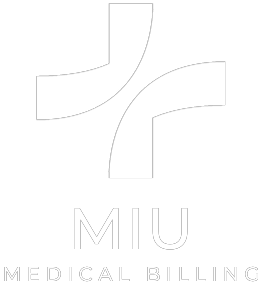Introduction
The healthcare sector is still changing at an extremely quick rate in 2025, along with the issues of financing the clinics. The increasing administrative expenses, complicated insurance packages, and constant changes in regulations complicate the process of keeping clinics profitable. This is where revenue cycle management (RCM) is required. RCM is the foundation of any successful medical practice, as it ensures that the services offered by healthcare facilities are paid the right amount and at the right time.
In the case of clinics in Plano, revenue cycle management optimization does not imply only a rationalization of billing and collection, but also incorporates sophisticated technology and data analysis. It is no longer about manual processes and management by reactive measures, but rather about proactive and technological management systems that can improve financial and operational efficiency.
The blog discusses the ways the clinics of Plano can enhance their RCM in 2025 with the help of modern strategies, automation tools, and outsourcing solutions, such as MIU Billing, that will help the provider concentrate on patient care without losing financial power.
Understanding Revenue Cycle Management (RCM)

Revenue Cycle Management is the accounting procedure that interlocks the patient care cycles between registration and booking of appointments, till the final payment of a balance. The RCM cycle consists of a number of steps:
- Patient Registration and Verification- Gathering the right patient data and insurance validation.
- Medical Coding and Charge Entry – Properly assigning ICD-10 and CPT codes to make the appropriate claims.
- Claims Submission- this involves the submission of claims to insurance companies electronically.
- Denial Management – Recognition and correction of rejected or denied claims.
- Payment Posting – Recording the payments by insurers and patients.
- Reporting and Analysis – Tracking financial performance and areas to improve on.
Properly managed revenue cycle assumes that fewer claims would be denied, payments would be made quicker, and cash flow would be better, which is paramount to sustaining the clinic.
Problems Plano Clinics have with RCM
Nevertheless, numerous clinics in Plano are still facing the problem of revenue management because of a number of ongoing problems:
- Claim Denials and Rejections: A wrong coding error or unfinished documentation results in a payment delay or denial.
- Insufficient Staff Training: Staff RCM knowledge is relevant to the accuracy and efficiency of billing.
- Manual Processes: The use of paper-based systems or old-fashioned software lowers productivity and raises human errors.
- Complexity of the regulations: Consistent changes in rules on insurance, HIPAA compliance, and coding requirements are confusing.
- Poor Data Usage: In most of the clinics, financial data is not analyzed, which can assist in enhancing billing performance.
To overcome these obstacles, in 2025, the clinics must utilize digital transformation, invest in automation, and think in a data-driven manner.
Major Revenue Cycle Management Solutions to Consider in 2025
The following most effective practices and new technologies can greatly enhance Plano clinics in terms of their revenue cycle management:
Automate Billing and Claiming Systems.
The future of efficient RCM is based on automation. Robotic billing systems are capable of dealing with automatic functions like coding, claims, and posting payments. Clinics cut back on manual input, thus enhancing turnaround time and cutting down the errors.
Automation helps the staff to concentrate on value-added tasks such as denial prevention and interaction with the patients rather than the administrative paperwork. Most of the current RCM systems have been integrated with Electronic Health Records (EHR) to ensure the smooth correspondence between patient information and billing.
Invest in the Education and Training of staff.
The RCM software is just as good as the individuals using it, even the best. Continuous training of staff on medical coding, insurance, and billing regulations should also be the priority of Plano clinics. Accredited coders and billing experts will be able to significantly reduce errors in claims and reimbursement.
Developed workshops and refresher courses to ensure that the teams are abreast of the ever-changing requirements of the Centers of Medicare and Medicaid Services (CMS) and the private insurers.
Enhance Denial Management Processes
Denial management is still a big challenge for clinics. Having a proactive attitude towards the issue, the clinic must investigate the causes of the denials and formulate a plan to avoid them in 2025. This includes:
- Using automated claim scrubbing devices.
- Assessing the patterns of denials and rectifying the errors.
- Submission of amended claims in time.
- Monitoring the key performance indicators (KPIs) such as first-pass resolution rates (FPRR).
Through this, clinics will be able to minimize leakage of revenue, as well as guarantee a healthier cash flow.
Adopt Data Analytics in order to make better decisions
The method of revenue management in healthcare facilities is being changed by data analytics. The clinical organizations that analyze billing data obtain information about trends, payment performance, and inefficiency in the functioning of the clinic.
Indicatively, performance dashboards enable administrators to track financial indicators, such as days in accounts receivable (AR) or collection efficiency, whereas predictive analytics can be used to identify patients who are likely to default on payments.
Evidence-based decision-making enables the Plano clinics to change strategies dynamically and to distribute resources.
Increase Patient Billing Transparency
By the year 2025, patients will want their bills to be clear and convenient. Clinics can reduce the rates of collections through the provision of clear prices, billing portals, and easy payment methods.
By having the knowledge of the insurance cover, copayments, as well as their financial liabilities on the first hand, the patients will have a chance of paying on time. Open communication also creates trust and enhances patient satisfaction.
Subcontract RCM to Proven Providers
Revenue cycle management is an activity that has been outsourced to several clinics in Plano. Through collaboration with a company such as MIU Billing, the clinics will have access to skilled billing experts, modern technology, and live analytics without necessarily paying employees to work in-house.
Outsourced RCM addresses all aspects of coding, submitting claims, and managing denial, along with monitoring compliance. This guarantees accuracy, quicker reimbursements, and less administrative workload – enabling providers to concentrate on the provision of quality patient care.
Embracing Cloud-based RCM Software

The concept of cloud-based RCM can change the way healthcare operations are carried out, as it offers real-time access to billing data, which is secured and accessible at any time, at any location, using any device. These systems guarantee the flawless integration with EHR systems, automation of the claim process, and scalability.
Using HIPAA-compliant cloud solutions, clinics are able to securely store patient information, reduce IT expenses, and remove the chances of patient data loss.
Value Compliance and Security
As online platforms gain more and more use, patient information security is something that cannot be compromised. Clinics ought to be seen as complying in totality with the HIPAA, CMS, and payer-specific policies.
The clinic RCM framework should incorporate regular audits, encrypted messages, and secure payment gateways to keep the trust and prevent expensive fines.
FAQs
Q1: What is the importance of RCM to clinics in 2025?
Revenue Cycle Management will verify right and timely reimbursements and will assist clinics to stay afloat in financial health despite the growing administrative and regulatory demands.
Q2: What is the way to manage revenue using technology?
Through automation, artificial intelligence (AI), and analytics, human error can be reduced, claims can be expedited, and real-time insights can be gained to enhance financial decision-making.
Q3: What are the advantages of RCM outsourcing?
By outsourcing to a partner such as MIU Billing, the clinics will cut down on the cost and improve efficiency, and concentrate on what matters more, which is patient care.
Conclusion
In the case of the clinics within Plano, 2025 is one place where they can reintroduce the way they manage their revenue cycles. Clinics can address most of the challenges related to RCM, attain financial sustainability through automation, the use of analytics, and compliance.
This transformation could be easier with the help of partnering with professional service providers like MIU Billing, which will offer experience, innovative tools, and custom solutions. Finally, maximizing the management of a revenue cycle is not only about generating more income, but also about creating a financially stable and patient-centered healthcare system of the future.




